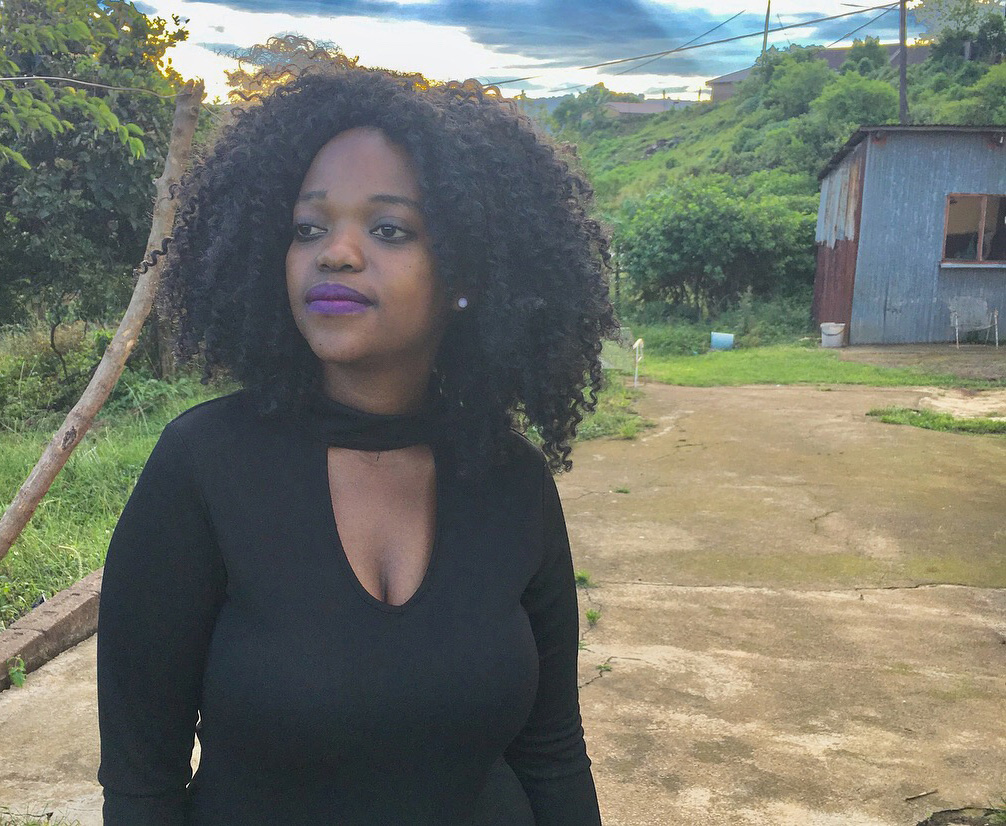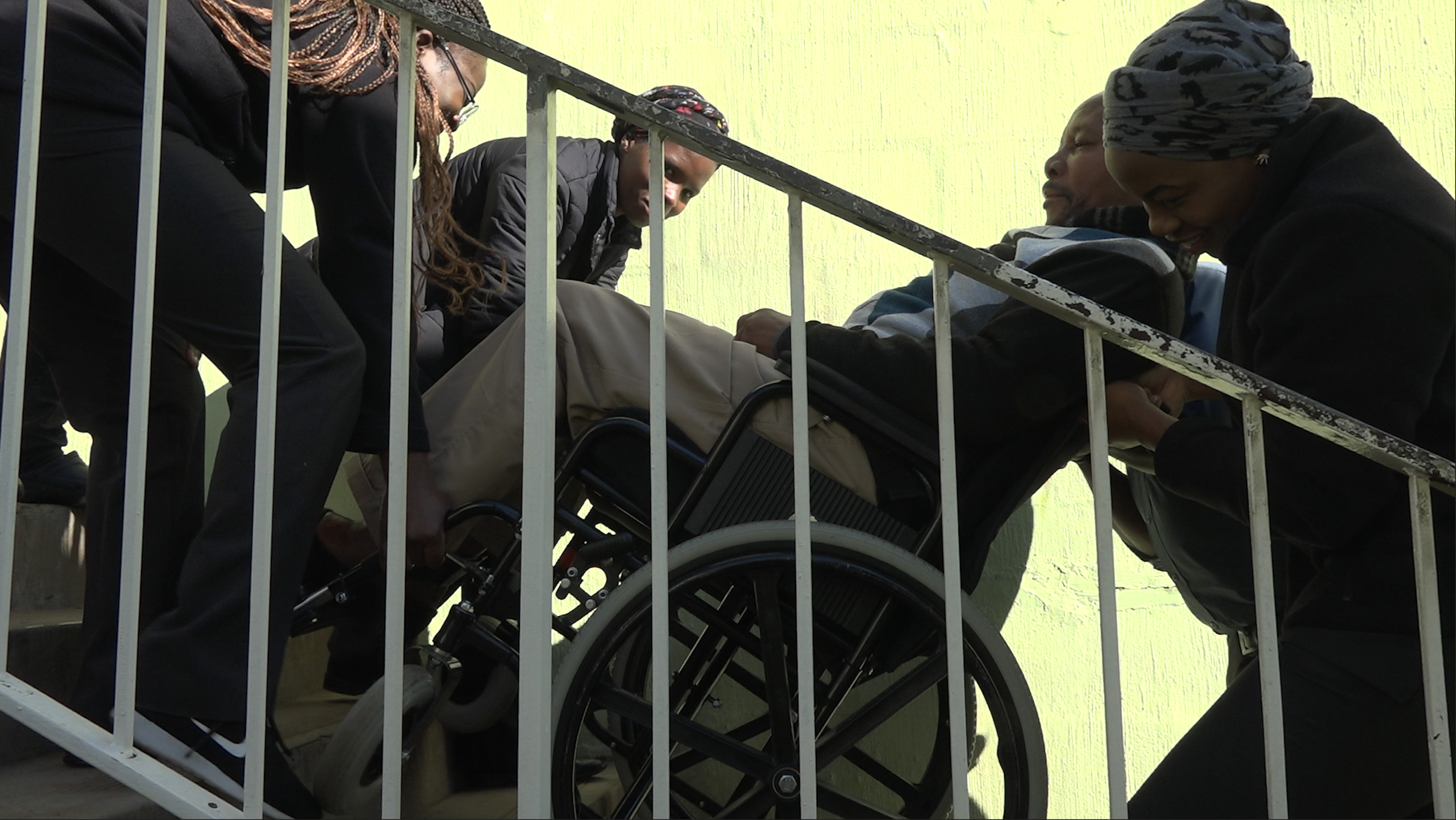Not far from David Mkhontwana’s flat in the South Rand, beige apartment blocks stretch up towards the sky. Prior to his stroke, Mkhontwana helped to build these when he was a construction worker. Now, David is essentially a prisoner in his own home.
A stroke two months ago rendered him with only limited movement in his one arm. His wife, Paulina, is unable to physically lift him, change his nappies, bathe him and get him from their second-storey apartment block to the nearby hospital for rehabilitation and support.
David is one of the 10 South Africans who suffer a stroke – a sudden interruption of blood supply to the brain – every hour. This is often linked to other lifestyle diseases, such as diabetes, obesity and hypertension, that are taking lives across South Africa and the rest of the continent.
“There have to be four or five people to help him down the stairs,” says Lwandile Gxuma, a home-based care worker from an NGO called Queens Haven. “And when he comes back, it’s the same process again of taking him up again. It’s not easy.”
Gxuma has become David’s lifeline to the outside world. He visits as often as he can to help get David to South Rand Hospital. Here, he joins the Stroke Aid support group run by retired Occupational Therapist Sylvia Birkhead. When funding was cut to all Stroke Aid support groups from the National Lotteries Commission, Birkhead continued to pay for food and transport with her own money. Stroke Aid groups in Sandringham and Soweto were also forced to de-register as NPOs but they continue to function through incremental donations for the regular attendees seeking support.
In a country where 45% of adults suffer from high blood pressure and 225 South Africans are killed by heart disease every day, rehabilitation is an essential part of recovery. Yet rehabilitation is often led by family members, NGOs, or social workers because of a lack of physiotherapists in the public sector.
In the Gauteng public health sector, for example, there are two physiotherapists to every 100,000 people. In rural areas, the isolation is even more alarming.
 Phumeh Mathonsi survived a stroke at age 24. Photo: Kim Harrisberg
Phumeh Mathonsi survived a stroke at age 24. Photo: Kim Harrisberg
Phumeh Mathonsi, is a 27-year-old from Mpumuza in rural KwaZulu-Natal who suffered a stroke three years ago. When her mother found her lying on the floor, crying out in pain at 2am, they did not know that she had suffered a stroke.
“We used traditional medicines on Friday and Saturday. Then on Sunday afternoon our congregation came to pray for her. And then as a family we decided to take her to the hospital,” says her mother, Thulisile, who has since quit her job to support Mathonsi after her stroke. Her comment speaks to the family’s desperation for answers.
They would have to wait an entire year for an MRI scan. In the interim, left alone with their questions, Mathonsi began to face ostracisation in the community who suspected her of being the victim of witchcraft.
“When I was able to walk again, I would walk around the community and I would see people whispering, talking about me,” Mathonsi told Health-e News. She lost friends and family, entering a depression that is commonly seen among stroke survivors in response to the isolation they face.
“When I had my stroke and I went to the hospital and they couldn't find the cause of it, people already suspected witchcraft. People began to fear me,” said Mathonsi.
 Traditional healer Sebenzile Ndlovu thanks the ancestors for their support in fighting strokes. Photo: Kim Harrisberg
Traditional healer Sebenzile Ndlovu thanks the ancestors for their support in fighting strokes. Photo: Kim Harrisberg
Not far from Mpumuza, traditional healer Sebenzile Ndlovu is seeing more and more stroke survivors coming to her for assistance. She believes that traditional beliefs can coexist with medical treatment. “Many people are suffering. You go into a taxi, there is a person with a stick. You go into the store, there is a person with a stick. There is a person with a wheelchair. There is a stroke crisis in our community.”
Ndlovu uses traditional healing methods, and also refers the survivors to the hospital. Strokes, she says, come in different forms – ancestral messages, bewitchment, and lifestyle diseases. Either way, she challenges the ostracisation of stroke survivors.
“Because if I say as a healer you are bewitched, who has bewitched you? Now you are suspecting everyone, and you isolate this person which is not good for her or him. It is very difficult because they are still people,” she says. “They are still alive.”
Social ostracisation, paired with rural isolation, means accessing adequate care is a challenge for stroke survivors who should ideally be getting daily rehabilitation from occupational therapists, physiotherapists and speech therapists.
“If you don’t live in the city or near a hospital and you are a person with a disability there are almost no services for you,” says Kate Sherry, an Occupational Therapist which campaigns for community based rehabilitation and integration of people with disabilities.
“More than 40% of SA population lives in rural areas and at the moment, access to rehab in rural areas is slim to none.”
Although left with few answers about how she suffered a stroke so young, Mathonsi admits that her diet may have played a role in her high cholesterol levels. She drinks two litres of sugary drinks every day, and even did so when she was in hospital recovering from her stroke. Sugary drinks and processed, salty foods are often the preferred consumables for South Africans, for their cost, flavour and accessibility.
This is a big reason for the scourge of lifestyle diseases taking the lives of South Africans, but also millions of people worldwide. Across the globe, stroke is number one cause of disability and the third biggest cause of death.
The rising number of lifestyle diseases has alarmed Health Minister Aaron Motsoaledi. Speaking recently to Health-e, he is said: “This is the reason we have started the reduction of salt intake in six food products: bread, brine in chicken, soups, cereals, spices…. to reduce the levels of hypertension because we know definitely, this is a crisis.”
Healer Ndlovu says that older generations ate better and lived longer. “That food was healthier,” she says, referring to the home grown vegetables and less processed foods. “I think that's why their bodies were fighting diseases so much because there were no clinics but they were alive, getting older, older, older. And still strong. I think food has got something to do with it. We are not doing it right.”
According to activists and rehabilitation specialists, South Africans’ relationship with and access to more nutritious foods needs to urgently change, but so too does the current status of rehabilitation and integration. This is part of keeping vulnerable members of our society alive, physically but also psychologically.
Back in Mkhontwana’s flat, his wife Paulina fills a bucket with warm water to sponge him down. In their small space, she manoeuvres around his wheelchair and between his walker, carefully balancing the bucket to avoid spilling the water.
She says she has a closing plea to all those interacting with stroke survivors: “They are still human. Please remember this. Above all else, they need love.” DM
Watch Health-e’s documentary on strokes and stigma on 25 September on Checkpoint eTV at 10pm/ DSTV Channel 403 at 8.30pm. Watch the repeat on Thursday 27 September




 Traditional healer Sebenzile Ndlovu thanks the ancestors for their support in fighting strokes. Photo: Kim Harrisberg
Traditional healer Sebenzile Ndlovu thanks the ancestors for their support in fighting strokes. Photo: Kim Harrisberg